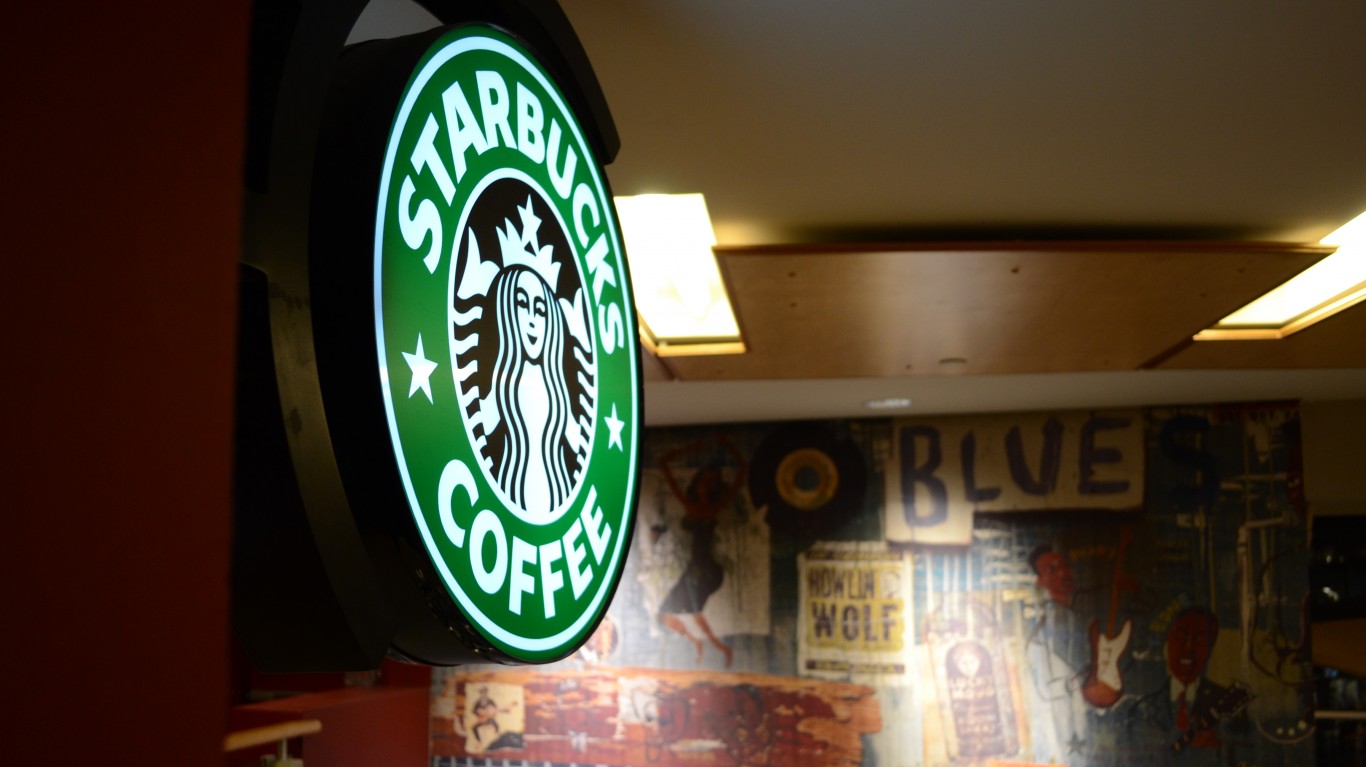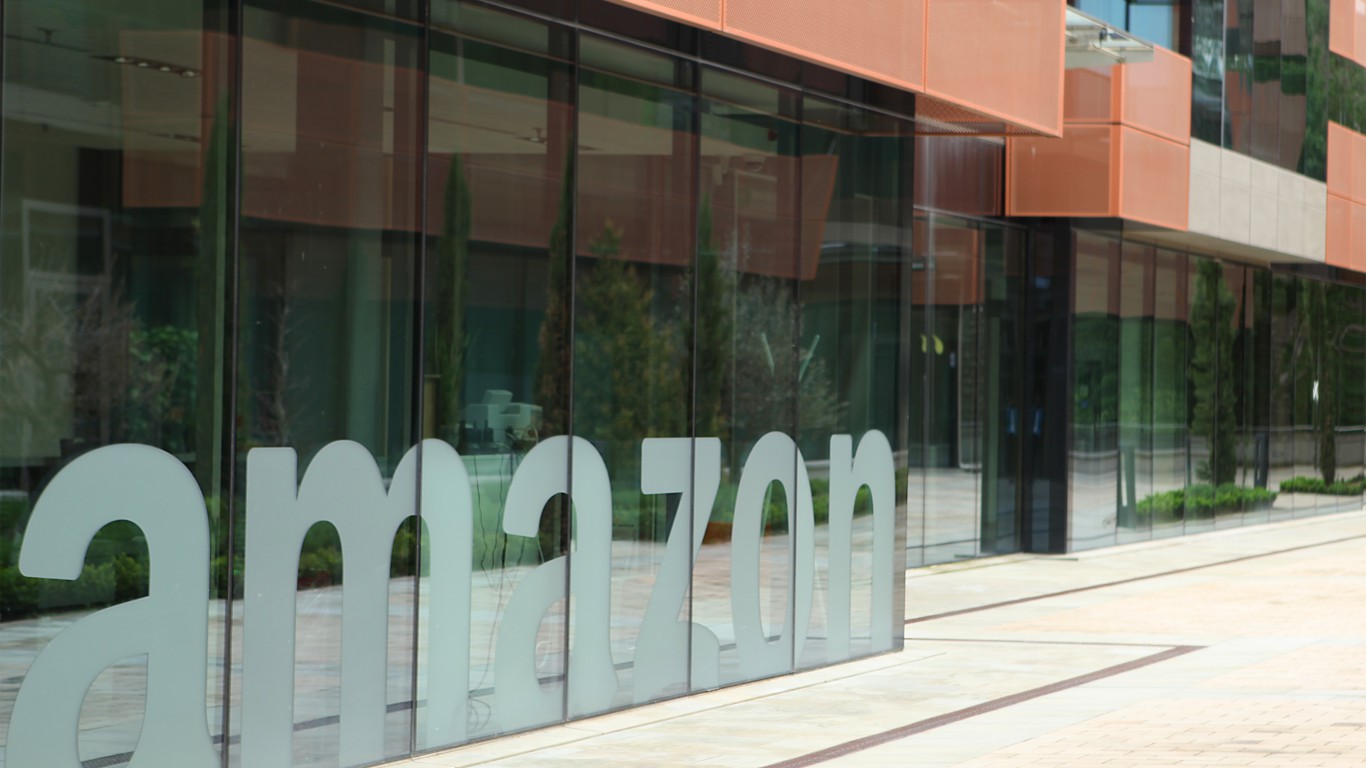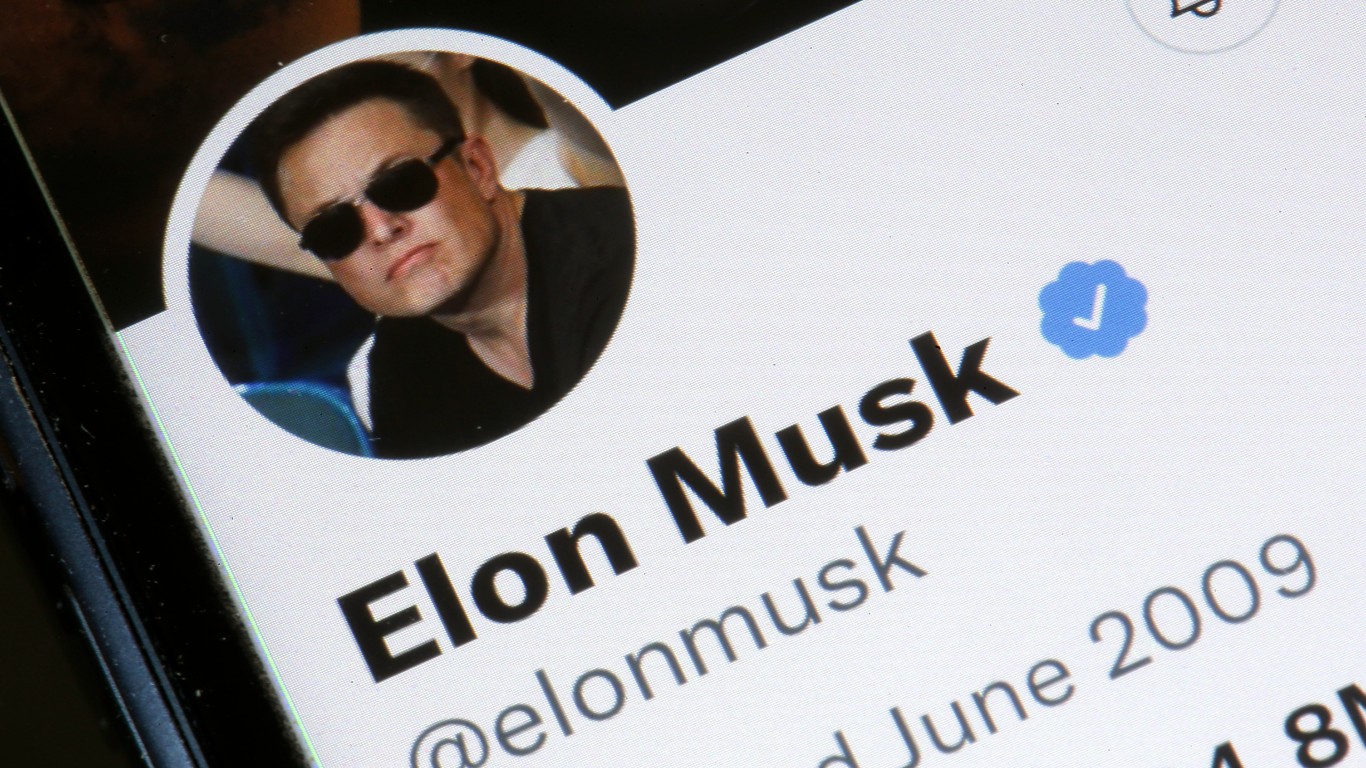
One thing has become very evident in 2020. Interest rates are going nowhere, and they likely won’t for years. With the 30-year Treasury bond yielding a tiny 1.66% and five-year certificates of deposit a pathetic 1% or lower, income investors have hit a wall when looking for dependable sources of income.
While stocks will never replace the safety of Treasury debt or bank CDs, some of the best-known U.S. companies pay extremely large dividends. The odds are that if they haven’t cut them by now, there is a solid chance they probably won’t.
We screened our 24/7 Wall St. research database for companies rated Buy that pay significant dividends. Again, there always is a chance they could cut them, but with 2020 almost over, and the hope for an economic rebound in 2021, the odds they keep them intact are rising.
It is important to remember that no single analyst report should be used as a sole basis for any buying or selling decision.
AT&T
This top telecom and entertainment play would be a conservative addition for any growth and income investors. AT&T Inc. (NYSE: T) is the largest U.S. telecom company and provides wireless and wireline service to retail, enterprise and wholesale customers. The company’s wireless network serves approximately 124 million mobile connections, with 77 million postpaid subscribers.
While AT&T’s traditional wireline voice business has undergone a period of secular decline due to wireless substitution and cable competition, the company through WarnerMedia has become a diversified media and entertainment business.
The third-quarter results showed solid subscriber growth in the company’s market focus areas of wireless and fiber broadband, while continuing to reflect strong cash flows, financial strength and business resiliency. AT&T also updated guidance and now expects 2020 free cash flow of $26 billion or higher, with a dividend payout ratio of 57% or so.
Investors receive a 7.70% dividend. BofA Securities has a $36 price target for the shares, while the Wall Street consensus target is $31.60. AT&T stock closed trading on Tuesday at $27.46 a share.
Chevron
This energy giant is a safer way for investors looking to be positioned in the energy sector. Chevron Corp. (NYSE: CVX) is a U.S.-based integrated oil and gas company, with worldwide operations in exploration and production, refining and marketing, transportation and petrochemicals. The company sports a sizable dividend and has a solid place in the sector when it comes to natural gas and liquefied natural gas.
Back in the spring, at the height of the pandemic, Chevron slashed spending after halting its $5 billion-a-year share buyback and halving spending in the Permian Basin, which means a large decrease in projected output from America’s biggest shale region.
The California-based oil giant lowered projected 2020 capital spending by 20%, or $4 billion. The Permian will account for the largest single element of that reduction, translating into 125,000 fewer barrels of oil equivalent per day than previously forecast, a quantity equal to about 2.5% of the basin’s total current production.
Chevron posted a surprise profit on better downstream, with the company close to breaking even on a cash basis, including the dividend. Preliminary 2021 capital spending guidance suggests it will be flat to lower, but inclusive of 330 thousand barrels of oil equivalent per day from the purchase of Noble Energy.
Investors receive a 7.50% dividend, which appears to be safe. The BofA Securities target price is $97, above the consensus target of $94.92. Chevron stock ended Tuesday at $71.74 a share.
Philip Morris International
This company has continued to grow global market share and its stock makes good sense for total return investors now. Philip Morris International Inc. (NYSE: PM) is one of the largest international cigarette producers, with a share of 28% of the international cigarette/heated tobacco market. Key combustible brands include Parliament, L&M and Marlboro, also one of the most valuable brands in the world.
Philip Morris International is commercializing IQOS, a heat not burn product, in over 40 markets, which could drive earnings in the years to come. Most on Wall Street believe the company offers superior underlying growth prospects, both near term and long term. The share price has been weak of late as investors have questioned the growth potential of its reduced risk products, and the overall market weakness has contributed. All of its sales are outside of the United States.
Essentially, top analysts expect the company’s base of IQOS users to increase to over 40 million by fiscal 2025 (up from 15.4 million users today, about a 20% compound annual growth rate) driven by accelerating conversion and stepped up innovation. Importantly, each 1 million new users consume 5 billion IQOSheated tobacco units annually, which generates an incremental $350 million in net revenue and $200 million in operating income annually, including device sales and. cannibalization effects. This is a classic and very powerful razor/razor blade model.
Philip Morris International stock investors receive a 6.70% dividend. The $100 Goldman Sachs price target compares with an $87.80 consensus target. Shares closed at $71.82 each on Tuesday.
Prudential Financial
This is a top financial services and insurance company, though only 15% of funds hold the shares. Prudential Financial Inc. (NYSE: PRU) is a global diversified life insurer with operations predominantly in the United States and Japan. The U.S. business underwrites and distributes annuities, life insurance, group benefits, asset management and retirement products and solutions. The international businesses primarily operate in Japan through captive agency and independent agency distribution with a focus on life insurance.
PGIM is the global asset management business of Prudential Financial, and it ranks among the top 10 largest asset managers in the world, with more than $1.4 trillion in assets under management as of June 30, 2020. With offices in 16 countries, PGIM’s businesses offer a range of investment solutions for retail and institutional investors around the world across a broad range of asset classes, including public fixed income, private fixed income, fundamental equity, quantitative equity, real estate and alternatives.
The insurance giant pays a 6.87% dividend. Goldman Sachs has set a $76 price target. The consensus target is $71.10, and Prudential Financial stock was last seen trading at $67.78.
W.P. Carey
This is a large net lease real estate investment trust (REIT) with an incredible distribution for income buyers. W.P. Carey Inc. (NYSE: WPC) ranks among the largest net lease REITs, with an enterprise value of approximately $17 billion and a diversified portfolio of operationally critical commercial real estate that includes 1,163 net lease properties covering approximately 131 million square feet.
For over four decades, the company has invested in high-quality single-tenant industrial, warehouse, office and retail properties subject to long-term leases with built-in rent escalators. Its portfolio is located primarily in the United States and northern and western Europe, and it is well diversified by tenant, property type, geographic location and tenant industry.
While real estate is struggling somewhat now, net lease REITs generally rent properties with long-term leases (10 to 25 years) to high credit-quality tenants, usually in the retail and restaurant spaces. “Net lease” refers to the triple-net lease structure, whereby tenants pay all expenses related to property management: property taxes, insurance and maintenance.
Investors receive a 6.54% distribution. The BofA Securities price objective is $77. The consensus target price is $75.44, and shares closed most recently at $65.91 apiece.
Note that any or all of these companies could at one point cut dividends, but with that in mind, investors have a chance to buy all five at discount pricing with huge dividends payouts. Even if a recovery in the share prices takes a while, the high dividends will make the wait more than tolerable.
Thank you for reading! Have some feedback for us?
Contact the 24/7 Wall St. editorial team.
 24/7 Wall St.
24/7 Wall St. 24/7 Wall St.
24/7 Wall St.


